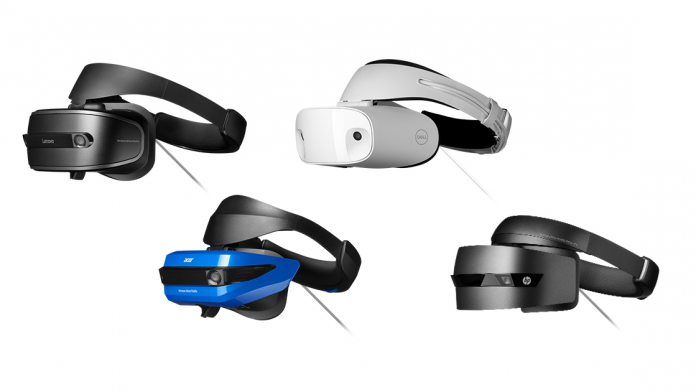Windows Mixed Reality headsets brought plenty of exciting advancements to the virtual reality space. For example, the head mounted displays (HMDs) require less computing power than rivals like Oculus Rift. This allows users with more standard PC hardware to use them. For the next generation of headsets, Microsoft will help evolve the headsets further.
If you have used one of the current Windows Mixed Reality headsets you will know they are a maze of cables. HMDs are connected via HDMI cables and USB-C ports that can make it hard to move around.
Microsoft is part of consortium that includes mixed reality giants NVIDIA, Oculus, Valve, and AMD. Today, the group announced its VirtualLink specification, an industry standard open source project that gives VR headsets the ability to connect with PCs through a single cable. The connection will be made through one high-bandwidth USB Type-C wire.
The consortium says the standard will help simplify VR setup and connection, while removing obstacles when using HMDs. Because of the single-wire connections, mixed reality will also be easier to implement on smaller devices, like smartphones.
“Simulating reality requires incredible visual fidelity and processing power,” said Jason Paul, general manager of gaming and VR, NVIDIA. “With a single, high-bandwidth cable, VirtualLink unlocks the full potential of the PC to power amazing VR experiences.”
Microsoft
Through VirtualLink, manufacturers can create a connection that handles four high-speed HBR3 DisplayPort lanes in a single cable. Microsoft says the development will help Windows Mixed Reality in the future:
“We have been involved on VirtualLink from the beginning and are supportive of industry-standard approaches for emerging Windows experiences including mixed reality,” said Scott Evans, general manager, Mixed Reality, Microsoft.
The company is pointing towards adoption through the next generation of Windows MR HMDs. Acer, Asus, Dell, Lenovo, and Samsung are among the current OEMs of the platform. The companies will likely use VirtualLink on next-gen hardware.






